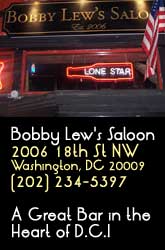Wikipedia, Google, Wired and Others Protest Anti-Piracy Measures With Site Blackouts 
January 18, 2012While Internet sites such as Wikipedia, Google, and Wired on Jan. 18 protested recent congressional anti-piracy legislation by joining in a “Blackout Day” against measures they denounce as censorship, former U.S. Senator Christopher Dodd, now chairman and CEO of the Motion Picture Association of America (MPAA), rejected the blackout as a mere publicity stunt that draws public attention away from the real issue—combating Internet piracy. Google’s blacked-out site urges visitors to “Tell Congress: Please don’t censor the web!” However, in sponsoring H.R. 3261, the "Stop Online Piracy Act" (SOPA), Congressman Lamar Smith (R-Tex.) said in a press release that this legislation targets “a vast virtual market online run by criminals who steal products and profits that rightly belong to American innovators. These foreign rogue websites not only steal movies and music, they offer counterfeit medicine, automobile parts and even baby food, which harm American industries and put American lives at risk.” Similar legislation in the Senate, S.968, entitled the Preventing Real Online Threats to Economic Creativity and Theft of Intellectual Property Act, or PROTECT IP Act (PIPA), was introduced by Senators Patrick Leahy (D-Vt.), Orrin Hatch (R-Utah), and Chuck Grassley (R-Iowa). In May, this bill was unanimously approved by the Senate Judiciary Committee on a voice vote. “Copyright infringement and the sale of counterfeit goods can cost American businesses billions of dollars, and result in hundreds of thousands of lost jobs,” said Leahy in a press release. “Protecting intellectual property is not uniquely a Democratic or Republican priority – it is a bipartisan priority.” U.S. Chamber of Commerce president and CEO Thomas J. Donohue issued a press release applauding the senators for their work and stressed that sites “dedicated to trafficking in counterfeit products and digital theft dupe consumers, steal our jobs, and threaten the vibrant Internet marketplace.” According to the U.S. Chamber of Commerce statistics, America’s IP industries account for more than $7.7 trillion of the U.S. GDP, drive 60% of U.S. exports, and employ more than 19 million Americans. “The Constitution protects both property and speech, both online and off,” said Hatch, insisting that the Internet “is not a lawless free-for-all where anything goes.” But the constitutional arguments raised by certain Web entities claim that these bills go too far in shutting down sites simply because they may contain some infringing content. In an interview with Intellirights, Consumer Electronics Association president and CEO Gary Shapiro shared these concerns, saying that PIPA could be used by the government as a “club” to shutdown websites and chill free speech. However, First Amendment expert Floyd Abrams, in a November letter to Congressmen Smith and John Conyers (D-MI), rejected the notion that the SOPA bill was any threat to freedom of expression on the Internet. Abrams wrote: Copyright violations have been protected by the First Amendment and have been routinely wherever they occur, including the Internet. This proposed legislation is not inconsistent with the First Amendment; it would protect creators of speech, as Congress has done since this Nation was founded, by combating its theft. A firestorm over SOPA and PIPA in recent weeks spurred White House officials to issue a statement saying that, “[w]hile we believe that online piracy by foreign websites is a serious problem that requires a serious legislative response, we will not support legislation that reduces freedom of expression, increases cybersecurity risk, or undermines the dynamic, innovative global Internet.” The White House statement was authored by Victoria Espinel, Intellectual Property Enforcement Coordinator at Office of Management and Budget, Aneesh Chopra, the U.S. Chief Technology Officer and Assistant to the President and Associate Director for Technology at the Office of Science and Technology Policy, and Howard Schmidt, Special Assistant to the President and Cybersecurity Coordinator for National Security Staff. Still, some feel that this organized blackout was a mere publicity stunt by Web companies like Google and Wikipedia. Speaking on behalf of the motion picture industry, MPAA’s Dodd issued a statement calling the blackout a “gimmick, albeit a dangerous one, designed to punish elected and administration officials who are working diligently to protect American jobs from foreign criminals.” Dodd argued: It is an irresponsible response and a disservice to people who rely on them for information and use their services. It is also an abuse of power given the freedoms these companies enjoy in the marketplace today. It’s a dangerous and troubling development when the platforms that serve as gateways to information intentionally skew the facts to incite their users in order to further their corporate interests. The blackout ends Jan. 18, but the debate in this battle over Internet power and influence will no doubt rage onward.
|


